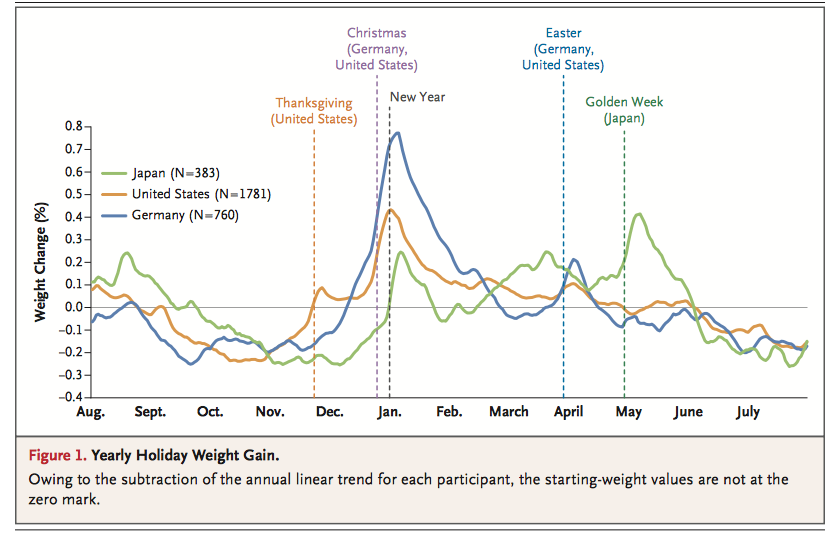As we head toward the holidays, you’ll be hearing advice on how to avoid packing on the pounds – and then how to lose it. And it’s a good idea to pay attention, because a new study highlights that Americans really do gain weight over the holidays.
That’s not good for cancer risk, because too much body fat links to increased risk for 11 cancers, including colorectal and postmenopausal breast.
The recent study, published in a letter in the New England Journal of Medicine, also sheds light on just how long losing the weight gain may take.
Using data from almost 1,800 adults weighing themselves on electronic wireless scales over a year’s time, researchers found that Americans begin gaining weight in early November and continue until early January. It takes until mid-October to get back to their lowest weight. Not unique to the US, people in Germany and Japan experience similar trends during their popular holidays.
In the US, the Christmas holiday period led to the most significant chunk of weight gain by far and then Thanksgiving.

Now is the time to develop and use strategies that work for you to limit your weight gain. Here are three common contributors to weight gain over the holidays and examples of strategies that can help:
- Sweet treats. Here’s where you need to be a food snob – choose your absolute 1-2 favorite calorie-rich treats and thoroughly enjoy them. Take time to taste and savor in modest amounts.
- Parties and potlucks. Take time to survey the foods on the buffet and put together a plate that allows you to enjoy special holiday dishes. By balancing rich foods with simpler and lighter fare, like colorful veggies, you’ll be able to enjoy those special holiday dishes in modest portions. Follow AICR’s New American Plate model – 2/3 veggies, whole grains, fruit and other plant foods and 1/3 or less animal foods.
- Alcohol and Sugary Beverages. These drinks add calories quickly and don’t make you feel full. Choose mostly calorie free drink – fruit infused sparkling water or spicy holiday teas for example. If you drink alcohol, keep portions small, make wine spritzers and follow the AICR recommendation for alcohol – no more than 1 drink per day for women, 2 for men.
Don’t forget to keep active too! Find even more ideas for a healthy and cancer-protective holiday.





